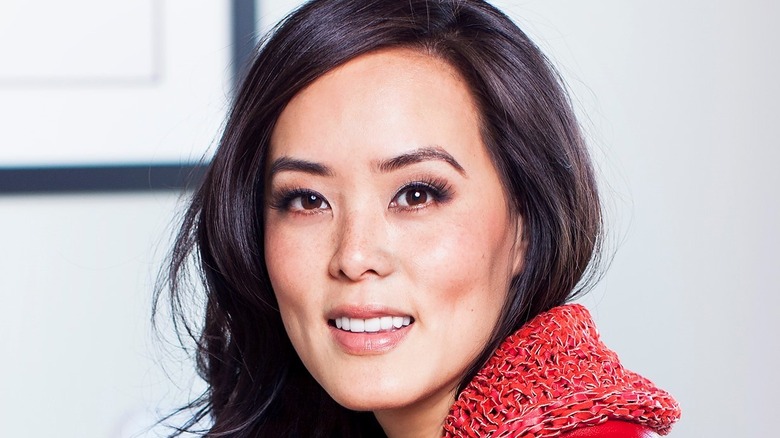Surrogacy Attorney Evie Jeang Shares What You Should Know About Surrogate Parenting And IVF - Exclusive Interview
For many women, motherhood is a lifelong dream. But not all women who want children can easily have them. Medical issues can make pregnancy unworkable for some, and until recently, social stigmas kept gay or unpartnered women from even legally adopting children. But medical advances such as egg extraction and freezing have opened up new options for prospective parents, including surrogate parenting — in which a surrogate mother incubates a fertilized egg for another woman — and in-vitro fertilization (IVF), in which a mother incubates a fertilized frozen or donor egg.
Impactful as these options can be, they're neither fast nor simple nor cheap. Egg extraction is an invasive medical procedure, as is being a surrogate parent. Multiple players are involved, from doctors to sperm donors to potential surrogate mothers, and choosing the right players for your team is critical. Virtually every aspect of the surrogacy-IVF process — financial, legal, and emotional — can be complicated and fraught.
Attorney Evie Jeang knows this firsthand: Her own surrogacy journey inspired her to dedicate her career (through her law firm, Ideal Legal Group, and her business Surrogacy Concierge) to helping families navigate the surrogacy process. In an exclusive interview, Jeang shared what you can expect should you pursue surrogate parenting.
Evie Jeang's personal surrogacy experience inspired her advocacy
You have personal experience with egg freezing and surrogate parenting — can you tell us a bit about what that was like for you?
If you talked to anyone who knew me in my early 20s, they would tell you that starting a family was never at the forefront of my mind. I had just graduated from law school, received my Juris Doctor, and was solely focused on my career as an attorney.
The idea of egg-freezing, IVF, and surrogacy never even crossed my mind. But it's the path I chose to parenthood and helped shaped me into who I am today. To be honest, my entire surrogacy adventure and career all started through a simple conversation with a friend of mine about 15 years ago. She was undergoing chemotherapy and recommended that I freeze my eggs.
Two years ago, she lost her battle against breast cancer and is no longer with me now. But I will never forget her advice and will forever be grateful to her. She is the reason I am a mother.
Barriers to surrogacy are lower in the U.S. than elsewhere in the world
Your law firm, Ideal Legal Group, specializes in helping people navigate the surrogacy process. Can you tell us about your typical clients and the challenges they face?
Prior to the pandemic, most of my clients were based internationally, specifically in Asian countries. Outside of the United States, in places such as China, there is little recognition for same-sex marriages or women's rights. For example, same-sex marriages just barely became legal in Taiwan on May 24, 2019. Taiwan is the first country in Asia to legalize and recognize same-sex marriages. I have yet to see any other Asian countries follow in Taiwan's footsteps or even pass any laws [or] policies that are more open to the LGBTQ community overseas.
As a result, I've had a lot of overseas clients retain me to pursue surrogacy here in California. We're considered the most open and favorable state for gestational surrogacy. Our laws are very fair and protective of all parties involved in the process. With that said, I've come across a significant number of same-sex couples [or] individuals, and single women who want to start a family. In Asian culture, there is a heavy emphasis on family and unity. Single women in Asia are typically not as revered as single men. Traditionally, a women's duty is to be a housewife and a mother. Same-sex couples, or individuals, do not have the option to start a family in Asia. Many Asian countries still have very traditional values, and it is ingrained into the culture and lifestyle there.
Due to the heavy travel restrictions and global stay-at-home orders, it made it difficult for clients to continue pursuing surrogacy in the States. Clients could not come and retrieve their babies that were being delivered without the risk of not being allowed back into their home country. During the pandemic, my client's surrogate gave birth to a baby girl, and my client tried to enter the United States three times. She was sent back each time by our Customs and Border Protection when she landed in Los Angeles. It was crazy!
Another difficulty that some of my clients face during the process are the costs associated with surrogacy. Each year, the cost of surrogacy increases because it is becoming more popular and accepted in the States. However, the average duration of surrogacy from start to end is a minimum of 18 months. Agencies and clinics are not going to honor the prices that were in place two years ago. When I started my company, Surrogacy Concierge, a surrogate's compensation was anywhere between $45,000-$80,000. This is not including all the other expenses paid to the surrogate — this was just her compensation alone. Nowadays, a surrogate's compensation can be above $100,000, and this does not even include egg donor, sperm donor, or medical costs.
The legal issues surrounding surrogacy and IVF can be complicated
What are the legal issues involved in egg storage and surrogate parenting, and how should one navigate these?
This is what I always tell my clients: Surrogacy is complicated, unpredictable, and involves many players. You can try and plan for everything, but somewhere along the way, you're going to come across something unplanned.
You have lawyers, doctors, clinics, egg donor agencies, sperm donor agencies, surrogate agencies, OB-GYNs, therapists [and] psychologists, etc. — all involved in your surrogacy adventure. That's a lot of hands in the pot. It's important to consult experts in the industry. Do your due diligence and research everything! You must be able to differentiate whether a person is trying to help you or trying to scam you.
Over the years, I've seen so many more surrogacy-related lawsuits — babies swapped at birth and given to the wrong intended parents, IVF doctors messed up and fertilized the wrong embryo, surrogates giving birth and disappearing with the baby ... There's so much more. All these incidents would take months — sometimes years — to be resolved through the legal system.
As an attorney who practices surrogacy law, I cannot stress enough the importance of seeking legal advice from an attorney who has been practicing surrogacy law or has relevant experience in the field. This is greatly and highly recommended. There are companies being created to help streamline this process.
When should people with ovaries begin talking to their doctor about potentially freezing their eggs?
As soon as possible. Females cannot pinpoint the exact state of health of their ovaries at any given time, or when it declines. Many IVF clinics will tell female patients that it would be best to go through egg retrieval and egg freezing by or before the age of 35. As females age, the quality and quantity of our egg follicles decrease. We do not produce as many eggs as we get older. You're going to want more eggs than less. Not every egg that is retrieved becomes a viable and healthy embryo.
Evie Jeang shares the questions prospective parents should ask themselves
What questions should one ask oneself to determine if surrogacy is the right choice versus other options like IVF?
A good set of questions to ask yourself and consider are one, "Is this going to be dangerous for me?" — two, "Do I need to pursue surrogacy or IVF?" — three, "Is it healthy for me?" — and four, "Will this make me happy?" I personally recommend to my clients that they always work with reputable clinics and facilities. If they have friends or family members who already went through surrogacy, then ask them about their journey and what their experience was like. There's no harm in arming yourself with more knowledge, especially in such a life-changing and monumental decision like this.
What are some common misconceptions about egg freezing and surrogacy?
It's a long journey. The process to find a suitable donor and surrogate is not instantaneous. I tell my clients all the time that not every requirement they have for a donor and surrogate will be met. I wish the process was that perfect and easy! It's more about finding the most compatible donor and surrogate for them. Every case is different and subjective — I have yet to come across a completely identical surrogacy case. I've even told my clients that going through multiple egg retrievals would benefit them. Not every egg produced becomes a healthy embryo.
Also, intended parents cannot make unreasonable and burdensome requests to their surrogates. As an intended parent, you can request that the surrogate exercise regularly — 2-4 times a week — make healthy life choices, no consumption of alcohol, etc. But intended parents are also expected to respect the surrogate and her life. Just because you've been matched with a surrogate does not mean you can dictate and control her life. She is still a human being. You will not believe how many times I've told a client that they cannot ask their surrogate to give up their pets.
Prospective parents need to do their research — and start saving up
What are your recommendations for finding reputable facilities and people to support you, such as a physician to extract your eggs, a compatible surrogate mother, and a sperm donor, if needed? How does your agency, Surrogacy Concierge, facilitate this process?
This varies from person to person. Ultimately, it depends on how picky you are and what your requirements for a donor [or] surrogate are. Finding a suitable donor and surrogate can take months. I compare it to dating, but on steroids. The criteria are much more stringent and stressful. Going back to my point that if you're thinking about pursuing surrogacy, do your research. You can find out so much on Google.
With my company, Surrogacy Concierge, I've been in this industry for several years now. I've gone to conferences, seminars, happy hours, court, and shaken hands with so many players in the game. The surrogacy industry is still very small. You'll come across familiar faces and names. We're all a part of an organization/association. There's been so many cases where I've had the same opposing counsel. Not to mention, I went through surrogacy myself and I've done the research. I'm familiar with all the clinics and doctors in my area. I still work with my IVF doctor on different client cases. My company has been working with the same reputable clinics, egg donor agencies, sperm donor agencies, and surrogate agencies for years.
What time frame should one expect when pursuing parenting via surrogacy?
Minimum 12 to 18 months. You're not going to get everything right or perfect the first time. Not that it's impossible, but it's rare.
What are the typical costs involved in egg freezing and surrogate parenting?
[For] the medical costs associated with retrieving the eggs, freezing them, and storing them, each clinic has [its] own set prices and different packages to choose from. If you use an egg donor, then you have all the fees associated with that as well, [like] egg donor compensation, agency fee, psychological review, travel reimbursement, life insurance, and more. If you're looking for a surrogate, then you must consider surrogate compensation, agency fee, psychological review, travel reimbursement, health/life insurance, lost wage reimbursement, and the list goes on. This is not a luxury that everyone can afford. It can become quite expensive.
Evie Jeang shares some details on egg extraction and its side effects
What are some other challenges and issues that prospective parents should know about when considering egg freezing and surrogacy?
Intended parents should always be aware of the risks that come with egg freezing and surrogacy. At the end of the day, it is still a medical procedure. Egg donors and surrogates will have to undergo hormone therapy and the risk of complications. Therefore, life insurance is applicable in donor and surrogate cases.
The recovery time for egg retrieval and surrogate deliveries varies. As a donor, you may experience hormone imbalances and potential complications later in life. As a surrogate, you are carrying and developing a whole baby inside you. There are several things that could go wrong during the pregnancy and delivery. The whole experience can be uncomfortable for donors, surrogates, and intended parents. Lastly, going through surrogacy is about finding the best donor [and] surrogate that fits the intended parents' specific needs and requirements. It's not going to be perfect, but it will be the best case for you. It's like job searching. You're looking for the best person-job fit.
For more information, please visit https://surrogacyconcierge.com/.
This interview was edited for clarity.







